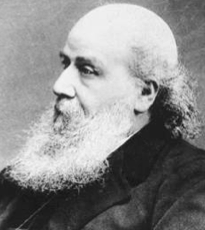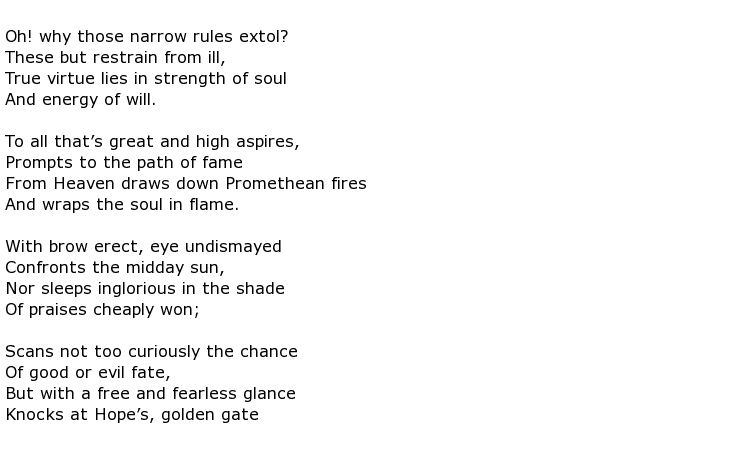 James Joseph Sylvester FRS was primarily a renowned 19th century English mathematician, scientist and academic but it is also on record that one of his lifetime passions was poetry. Many of his published papers on mathematical matters contain poetic quotes and he spent a great deal of time both reading and translating classical pieces written in Latin and Greek, along with poetry in other modern European languages. He held a number of academic posts in the United States of America and England including being a professor at Oxford University.
James Joseph Sylvester FRS was primarily a renowned 19th century English mathematician, scientist and academic but it is also on record that one of his lifetime passions was poetry. Many of his published papers on mathematical matters contain poetic quotes and he spent a great deal of time both reading and translating classical pieces written in Latin and Greek, along with poetry in other modern European languages. He held a number of academic posts in the United States of America and England including being a professor at Oxford University.
He was born James Joseph on the 3rd September 1814 in London, the son of a merchant. When his older brother emigrated to the United States James added the surname Sylvester due to a custom of the time requiring all immigrants to have three names – first, middle and surname. James remained in England though and, showing early academic promise, went to study under Augustus de Morgan at the University of London. This was curtailed though after a stabbing incident and he moved on, first to the Liverpool Royal Institution and then to St John’s College, Cambridge which is where his studies in mathematics really began.
He did enough to earn a degree from Cambridge but was denied a formal graduation due to his inability to state his acceptance of the Thirty-Nine Articles of the Church of England. This strict requirement of the time was beyond him as he was Jewish. He had to go to Dublin in 1841 where he was awarded a BA and a move to the United States immediately followed. However he experienced troubled times during his two years there, usually involving ill-disciplined university students, and he returned to England in 1843.
A career in the insurance industry beckoned and he was engaged on the development of actuarial models for the Equity and Law Life Assurance Society. He also studied law which was a requirement of his position as de facto CEO. He entered the teaching profession in 1855 at the Royal Military Academy in Woolwich where he was appointed professor of mathematics. He took early retirement from this position and finally had the chance to publish a book that linked both poetry and mathematics. It was called The Laws of Verse and was his detailed study of the rhythmic structure of verse and the use of metres, otherwise known as prosody.
Sylvester’s output of poetry was limited but his inbuilt scientific approach to everything in his life was evident in poems such as a piece called Remonstrance, a poem that uses complex language and abstract themes throughout. His early studies of the classics are referenced in the line that mentions drawing down “Promethean fires” from heaven. The opening verses are reproduced here:

It was clear that Sylvester had a passion for language as well as mathematics and he delighted in the insertion of

into his highly technical publications, often including ancient poetic quotations where appropriate. The earlier denial of a degree from Cambridge was rectified in 1872 when he was awarded both Bachelors’ and Masters’ degrees in recognition of his academic achievements. He was responsible for the creation of a number of mathematical terms that are still in use today, examples being “graph” and “matrix”. He also had a keen interest in puzzles and sent many of his tricky problems to newspapers such as the Educational Times. His retirement years were long and leisurely and he could often be found in the Athenaeum Club in London.
James Joseph Sylvester died on the 15th March 1897 at the age of 82.

